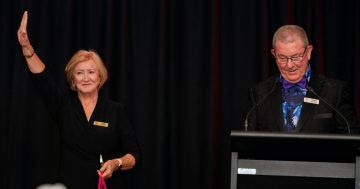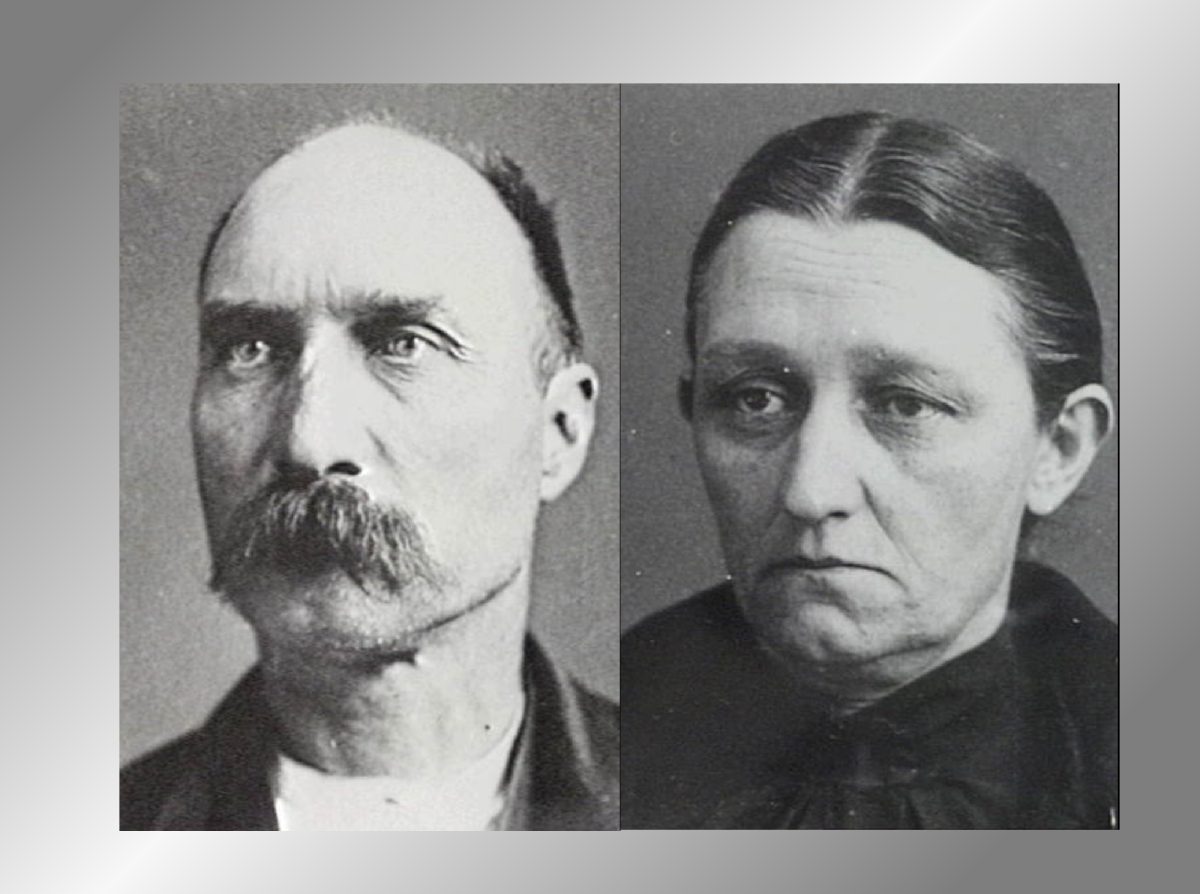
Child murderers John and Sarah Makin. From the collections of Wollongong City Libraries and the Illawarra Historical Society.
In 1892, a one-month-old baby boy was found buried in the backyard of Sarah and John Makin, former landlords of Wollongong’s Royal Alfred Hotel.
Less than a year later, John was hanged in Darlinghurst Gaol after he and Sarah were convicted for the murder of 14 infants whose bodies had been buried in the yards of other inner Sydney houses in which the family had lived.
The Makins became known as the Baby Farmers, and their infamous trial exposed a black market in the sale and murder of children whose mothers were struggling to survive.
It’s likely that few who knew John as a lad growing up in Dapto would imagine his horrific crimes or his manner of death at just 48 years old.
John was born at Dapto on Valentine’s Day, 14 February 1845, although his prison record states he was born in 1842. He was the fourth of 11 children of farmer William Samuel Makin and his wife Ellen.
It appears hotel keeping ran in the Makin family. According to the Illawarra Historical Society, William bought a “public house” on the southwest corner of Corrimal and Market streets in Wollongong in 1856 and renamed it Makin’s Inn. It only traded for a couple of years and after it was demolished, William rented out the vacant land to travelling circuses.
John’s brother Joseph became a well known Wollongong identity, operating Joseph Makin’s Royal Hotel on the corner of Crown and Corrimal streets. After his retirement, his son George reopened the hotel as the Oxford Hotel in 1916, which stood for another 100 years.
John’s nephew, Fred, built and ran Dapto’s Central Hotel on Bong Bong Rd, from 1896. The hotel, now demolished, sat opposite the current Dapto Leagues Club.

The Central Hotel on Bong Bong Rd, Dapto. Photo: From the collections of Wollongong City Libraries and the Illawarra Historical Society – P01/P01667.
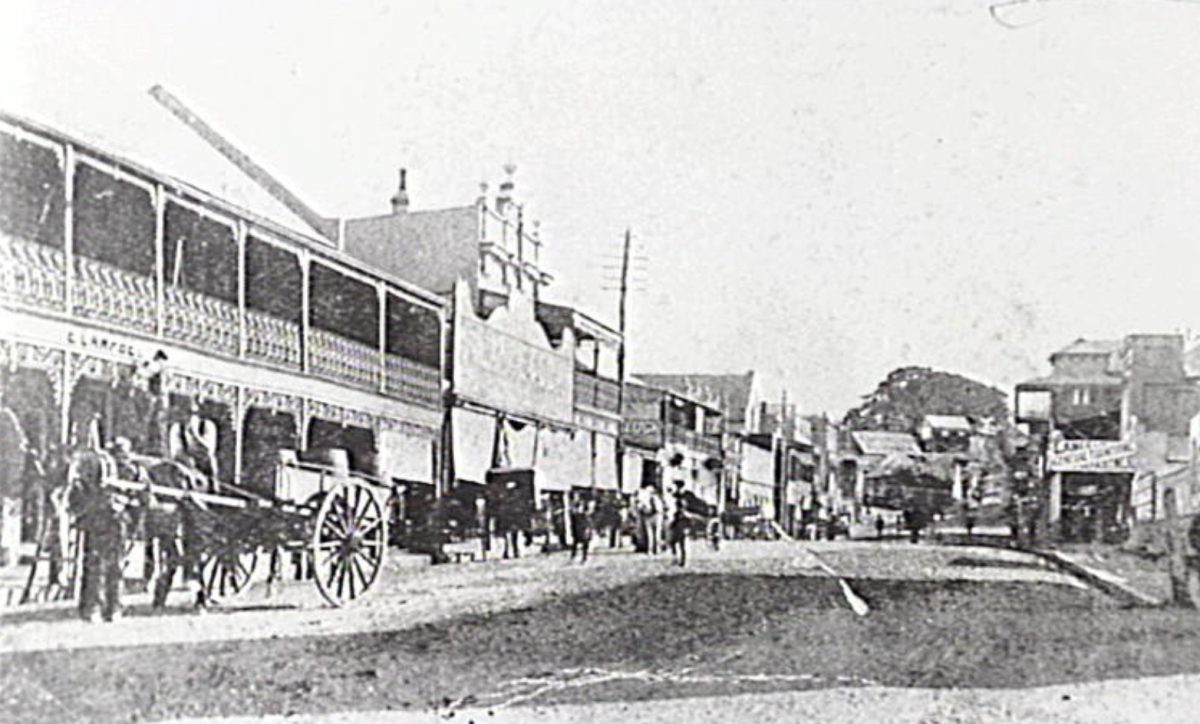
At the intersection of Crown and Keira streets looking east; Freemasons Hotel is on the left and the Makins’ Royal Alfred Hotel is the four-storey building. From the collections of Wollongong City Libraries and the Illawarra Historical Society – P03/P03099.
Sarah was born on 20 December 1845 in Sydney, the only daughter of former convict Emanuel Sutcliffe and his Irish-born wife Ellen.
Her marriage to John in 1871 was her second, and they had 10 children, five sons and five daughters.
The year after their marriage, John was granted a licence for the Settler’s Arms hotel on the northeast corner of Crown and Keira streets in Wollongong, despite opposition from police.
John renamed the hotel the Royal Alfred Hotel, but during the time he and Sarah were licensees, police were regular visitors to deal with disorderly conduct from patrons, alcohol being sold illegally and patrons leaving the hotel at all hours on a Sunday.
In 1873, John and Sarah Makin left Wollongong for Sydney where their murderous campaign began.
The Makins turned to making money by caring for illegitimate children. According to the Australian Dictionary of Biography, John would answer advertisements, negotiated payments of £3 to £5 and signed “papers” exonerating the alleged fathers from further responsibility.
John and Sarah carried on operations in several inner-Sydney suburbs and their crimes were only discovered by accident in 1892, when the remains of an infant were discovered in a Macdonaldtown backyard.
Sydney’s Evening News reported: “A man named James Mahoney was digging in the yard for the purpose of laying a service pipe, when he came on what he at first thought was the decomposed body of a buried cat, but soon found it was that of a human infant.
“About 30 yards away he found another, and the police were at once made acquainted with the facts. Drs. Milford and Paton pronounced the bodies to be one male and one female, and to have been buried about six weeks.”
The Makins had lived in the house, at 25 Burren St, about the time the deaths had occurred.
An inquiry was launched, with both John and Sarah Makin giving evidence. Sarah swore that she took no child with her to the house, but took one in to nurse the day after her arrival, which had since been taken away by its parents whom she did not know.
The jury returned an open verdict, deciding there was not enough evidence as to cause of death. However, police weren’t satisfied with the verdict.
“The police considered the circumstances surrounding the case so suspicious that a careful search of the Burren Street premises was made and five more bodies were dug up in the yard on November 3,” the Evening News reported.
“The Makins were at once sought for, and found to have again moved. They were arrested, as were also two of their daughters, Blanche, aged 17, and Florence, aged 14.”
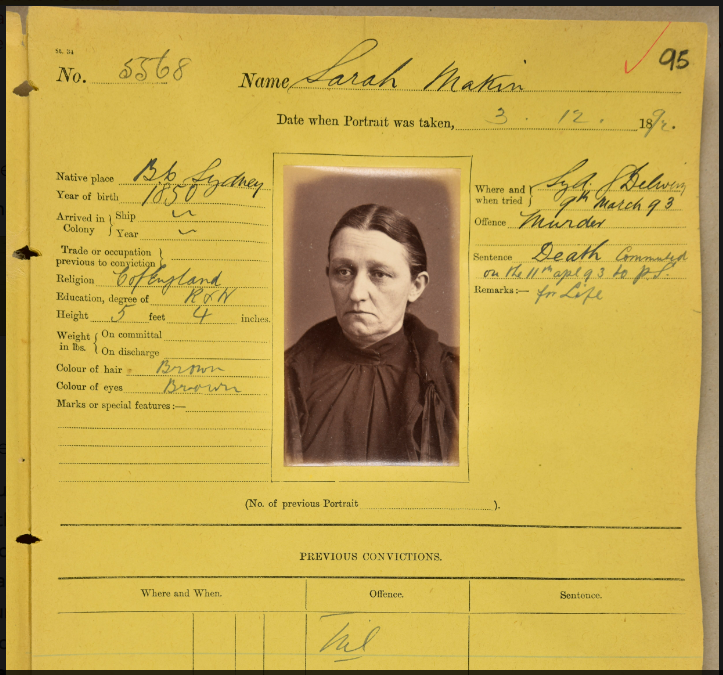
Sarah Makin’s prison record from the Museums of History NSW’s collection, showing her death sentence which was later commuted to life.
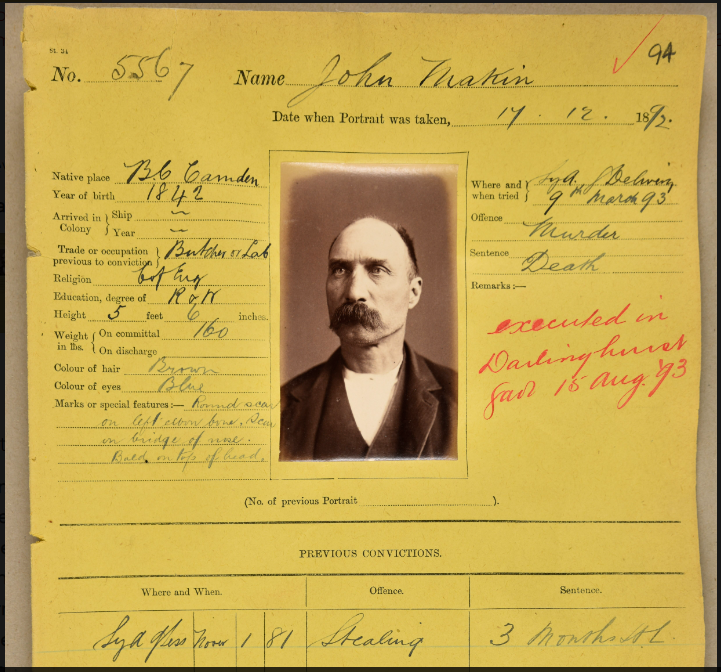
John Makin’s criminal details, recording his execution on 15 August 1893. Photo: Museums of History NSW.
A second inquest was held on 7 November where all four were charged “on suspicion with causing and being concerned in the death of the infants”.
Police eventually dug in 11 backyards where the Makins had lived since 1890, recovering 13 bodies.
Four bodies were found in the yard of a house in George St, Redfern – only one house away from the Redfern Police Station.
The remains of two more infant bodies were unearthed in the yard of another Redfern house where the Makins had lived some months before.
The Evening News reported: “A neighbor asserted that during their stay in the house they had several infants in their care, which were heard to be continually crying. Shortly after the Makins moved into the house an unpleasant smell was detected from the yard, but no notice was taken of it, and after they moved out of the house the odor was particularly noticeable.”
After the second inquest had also returned an open verdict, the jury on the third inquest found a verdict of manslaughter against John and Sarah, but Blanch and Florence were released. The charge of manslaughter was later upgraded to murder.
John and Sarah’s trial started in the Sydney Central Criminal Court in March 1893.
The trial lasted three days before the jury found both guilty, with a recommendation for mercy in Sarah’s case.
The judge, Justice Stephen, was scathing in his address to the pair.
“You were engaged in baby-farming in its worst phase and most forbidding aspect.
“What the poor little babies’ lives and sufferings were God only knows. It is almost incredible to think that two persons as you should have hearts as hard as adamant, utterly dead, and you must not expect any mercy at the hands of him for the lives you have taken away.”
The Makins appealed the decision, including a deputation to the premier of the day George Dibbs, but it was swiftly dismissed.
Sarah’s sentence was commuted to penal servitude for life, which she served at Bathurst and in Sydney. In 1911 she was discharged from the State Reformatory for Women at Long Bay to the care of her daughter Florence on the grounds of her great age and declining health.
John Makin was hanged on 15 August 1893 at Darlinghurst Gaol.
At least two books have been written about their horrific crimes – The Baby Farmers by Annie Cossins (2013) and another by long-time Illawarra Historical Society members Carol and John Herben, titled From Barren Street to the Gallows (1997).
Their account inspired a musical in 2008, The Hatpin, which tells the story of one of the mothers who entrusted her son to the Makin family in the hope of saving his life.









